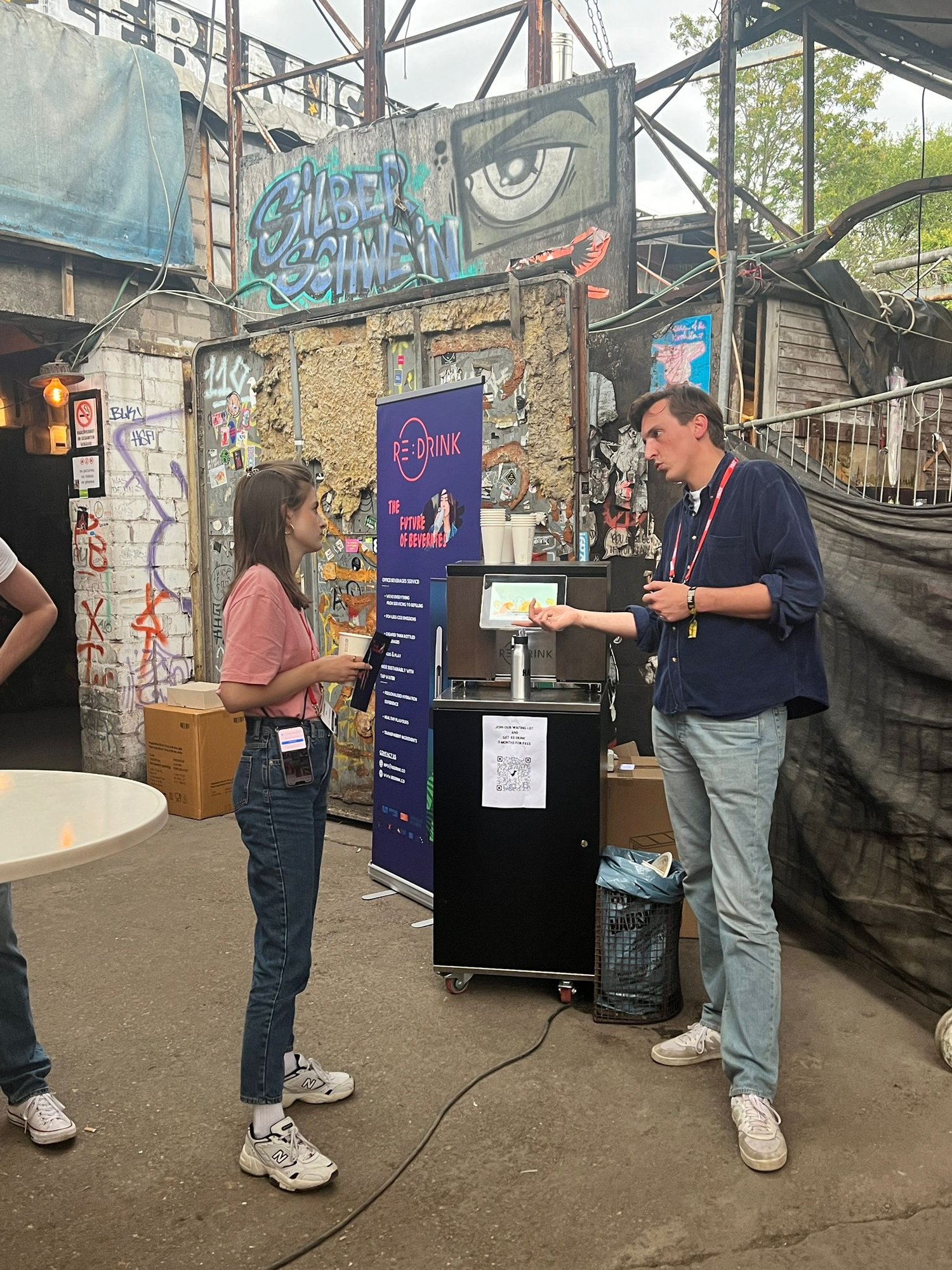· office management · 3 min read
Challenges of Managing Office Bottled Drinks
Explore the time, space, budget, and sustainability challenges faced by office managers in handling bottled drinks. Discover potential solutions to these predicaments.

We conducted dozens and dozens of interviews with experienced office managers and facilities managers. We would like to thank all of our interviewees. These interviews gave us a lot of insight and we were able to highlight a lot of pain points that office managers were experiencing.
Here are some of those points:
Time
Office managers were suffering from bottle handling and time was a big issue. While the ordering process was relatively straightforward, the unreliability of beverage delivery times was a major issue (in the summer, beverages were sometimes not delivered at all). Once the bottles were delivered to the doorstep, they had to be stored and stacked in the fridges.
Unfortunately, the deposit had to be managed, which was the biggest problem. Cleaning up after people, putting the right bottle in the right crate and hoping that all the bottles were still in the office. In total, the time spent managing drinks was somewhere between 2 and 8 hours, with some larger offices employing a full-time member of staff just to manage drinks. This person was really needed for other tasks, but they could not give up bottle management.
Space
As well as time, space is often lacking in an office. People want a clean office: no dirt, clean desks and, ideally, no bottles floating around. So where do the bottles live in the office? The server room? The bathroom? The already cluttered utility room? The worst case scenario was an office manager who had to transport crates and empty bottles from the basement to the 6th and 7th floors (there was no lift from the 6th to the 7th floor).
Budget & New Work
After Covid, many office managers have the task of making their offices as welcoming as possible. Companies may want people back in the office, so they are offering more and more perks. The main result is that people are in the office from Tuesday to Thursday, while Monday and Friday are often home office days.
While the cost of benefits is rising, one of the biggest expenses is the cost of food and drink. Beverages account for up to 75% of the expenditure budget. While budgets are limited, offices can look for new solutions to introduce services that reduce costs at one point to provide a better and more sustainable service.
Sustainability
More and more companies are seeking to become more sustainable, not only because they have to under the new EU-ESG targets, but also because younger generations want to work for employers who care - for the planet, for their health, for the future.
Gen Z are looking for employers who can help empower them to make a difference. Organizations that actively listen and help address their needs and concerns will improve business resiliency and implement actionable change in our world.
Offices and workplaces are the first to feel this desire, but there is a lack of solutions to really show that they care.
Water Dispenser - on the next level
While water dispensers are one solution, they have their own problems. The lack of IoT can make them difficult to use - people don’t know when to replace the CO2 bottle, when it needs to be cleaned.
With Re:Drink, we are taking water dispensers to the next level. Offering a beverage delivery service that is always available, managed by our software and predictive maintenance, takes up just 1m² and is as sustainable as it gets. We offer beverages of the highest quality, personalised to the user, with more features to come.
